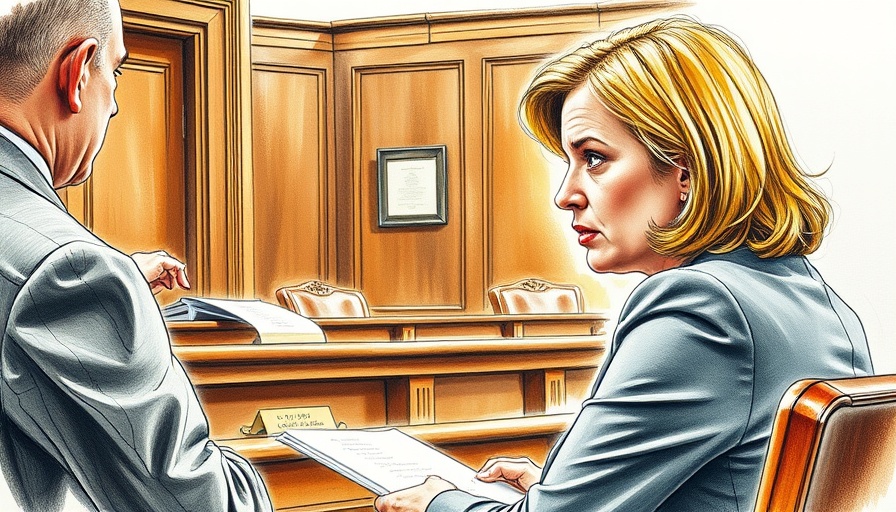
The Diddy Trial: A Look Inside Cassie Ventura's Testimony
The courtroom scene surrounding Sean "Diddy" Combs has garnered significant media attention as singer Cassie Ventura concludes her testimony amid serious allegations. Ventura has accused Combs of serious crimes, including rape and sex trafficking, during their complicated relationship. The recent cross-examination has raised questions about her credibility and the timeline of events that she testified about, reflecting broader societal issues regarding domestic violence and the treatment of victims in court.
Challenging Ventura's Credibility: A Tactical Move for the Defense?
The defense’s strategy hinged on undermining Ventura's credibility, focusing on discrepancies in the timeline of the alleged rape incident. They drew attention to text messages exchanged between Ventura and Combs that seemingly contradicted her claims. By questioning why she didn't mention the assault in these communications, the defense aimed to paint a narrative that would potentially sway jurors' opinions on her reliability. In high-profile cases like these, the perception of a victim's credibility can heavily influence verdicts, highlighting the challenges victims face in receiving justice.
The Context of Domestic Violence Cases in America
Domestically, the issue of domestic violence and abusive relationships remains a pressing concern. According to recent statistics, nearly 1 in 4 women experience severe intimate partner physical violence. Ventura's testimony shines a light on the complicated dynamics at play in abusive relationships and how they can be overlooked in court as narratives are drawn out through legal tactics.
What This Case Means for Victims Everywhere
The implications of the Diddy trial extend beyond the courtroom. It ignites discussions around the challenges victims face when coming forward. The justice system often places immense pressure on those making serious allegations, with many victims, including Ventura, facing skepticism that can deter them from sharing their experiences. The scrutiny of public figures in such cases can either encourage or dissuade future victims from seeking justice, depending on the outcomes.
Community and Culture: The Importance of Support Systems
As this case unfolds, it emphasizes the need for robust support systems for victims of abuse. In cities like San Antonio, numerous organizations advocate for survivors, creating safe spaces for dialogue and healing. Understanding local resources available can empower individuals facing similar situations, offering them hope and avenues to seek help.
Public Reactions and Social Media Influence
The trial has not only captivated courtroom followers but also social media users, where opinions on both Ventura’s and Combs’ actions are divided. Social media platforms act as echo chambers where narratives can be quick to form, potentially overshadowing the complexities of real-life experiences of abuse victims. The public's reaction often reflects a broader societal stance on how allegations of domestic violence and assault are perceived.
Future Trends: Will This Case Change Perceptions?
As high-profile cases like this one unfold, they have the potential to shift public perception regarding accountability for abusers and support for victims. In the wake of the #MeToo movement, public sentiment is gradually leaning towards favoring victims, but persistent cultural norms around masculinity and the stigmatization of victimhood continue to pose challenges.
In conclusion, the outcome of the Diddy trial will resonate far beyond its legal implications. It is a reminder of the societal work that remains to be done in supporting survivors and creating an environment where they can speak their truth without fear of retribution or disbelief. As the trial progresses, many will be watching closely.
We encourage readers to engage in the conversation surrounding domestic violence advocacy and explore local San Antonio resources that offer support and assistance.
 Add Element
Add Element  Add Row
Add Row 



 Add Row
Add Row  Add
Add 


Write A Comment